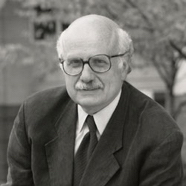The Destructive Impact Of Voter Suppression
FRED WERTHEIMER’S WEEKLY NOTE | JANUARY 27, 2022
 If anyone had any doubt about the destructive impact that last week’s defeat in the Senate of the Freedom to Vote: John R. Lewis Act will have on our nation, look no further than this example from Texas.
If anyone had any doubt about the destructive impact that last week’s defeat in the Senate of the Freedom to Vote: John R. Lewis Act will have on our nation, look no further than this example from Texas.
Kenneth Thompson, a 95-year-old World War II veteran, who says he has never missed a vote for many, many years, has had his Texas mail-in ballot application denied twice this year due to the onerous and confusing new state laws enacted by the GOP-controlled Texas state legislature.
Thompson’s daughter ultimately intervened, made calls, and helped him clear up the problem.
But, Thompson said, he is concerned about other voters who will encounter similar problems: “There’s gonna be a lot of people not gonna vote.”
Or, look at this example from Georgia where new state laws have resulted in a Republican-controlled State Election Board replacing a Democratic majority of three black women on the Spaulding County Board of Elections with a Republican majority of three white men – including a new Chairman who endorsed Trump’s claim that the presidential election was stolen. The Spaulding County Board is one of six county boards that Republicans have reorganized under new laws.
Polling places are being closed in Georgia, even as the state’s population of registered voters has grown by more than one million in the past decade.
Voter suppression and election sabotage laws enacted last year by GOP-controlled state legislatures are starting to take their damaging toll. And, the voter suppression efforts aren’t slowing down in 2022.
The Georgia Senate President recently introduced a bill to completely ban drop boxes, which have been widely used by voters to make it easy to return absentee ballots. Indiana has legislation pending to limit vote by mail and Republicans in Virginia have already introduced 20 bills to limit or restrict vote-by-mail. In Arizona, a new bill would require proof of citizenship to receive a voter card but would no longer allow a Tribal ID card to be used as proof.
The Freedom to Vote: John R. Lewis Act would have overridden these kinds of voter suppression laws by creating federal standards for voting in federal elections. It would also have combatted state election sabotage laws.
The Act was blocked last week by a vote of 52-to-48, with 50 Republicans and two Democrats voting to kill the legislation by refusing to modify the filibuster rules that would have allowed it to pass by a majority vote.
If these state voter suppression laws are allowed to stand, they will take away the ability to vote from potentially millions of Black, brown, and other minorities, as well as urban voters, the disabled, the young, and the elderly.
That’s why last week’s setback in the Senate cannot and will not be the end of this fight. It’s just too important to walk away from a battle that must be won in order to protect and preserve our democracy.
The late Representative John Lewis, one of our greatest civil rights icons, once said: “The right to vote is precious, almost sacred. It is the most powerful nonviolent tool or instrument in a democratic society. We must use it.”
And, today, we must save it.
The fight to protect our democracy didn’t end last week. Voting rights supporters are now figuring out the next steps to take in the battle to protect the “precious, almost sacred” right to vote. This fight will go on.
________________________
Fred’s Weekly Note appears each Thursday in Wertheimer’s Political Report, a Democracy 21 newsletter. Read this week’s newsletter here. Or, subscribe for free here and receive your copy each week via email.